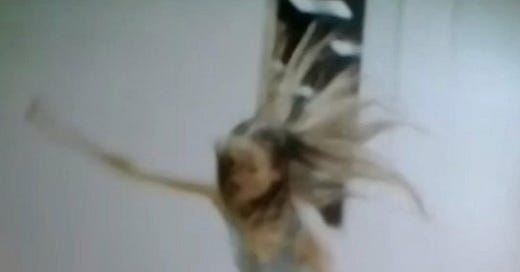Maybe it was the desire for change — The hunger for it. Endless. It’s been there all my life. I am never one to accept things as they are for long; change is a lifeline for me. When things become too repetitive, I bring about change, if necessary, forcibly.
When I was young, people told me, “You’re making a rash decision.” It didn’t seem rash to me. I had no fear. It wasn’t bravery. It was a desire for things to be different that outweighed the current comforts.
The truth is that I’m uncomfortable in such comfort. I’m motivated by the knowledge that life will or at least can be different in the not-so-distant future. “Change it all, if you must,” I might beckon to the Gods —
But what must stay the same?
Who will come with me when I change?
Do I have the courage to change with grace?
Do I have the honor to be good to what’s come and must now pass?
My greatest inspiration in life was undoubtedly my mother, an unbridled artist. She set her life up for constant change, ever in the production of a dance here or there, as an international choreographer. There were sites she returned to, but after lapses away from such, and always with new adventures and explorations, new insights to discover and write essays about.
I admired her life in this way. As a child, there was a need to provide me with stability. But for my mother, change seemed to be her stability. She seemed to rely upon it —
“Throw me into a situation where I don’t know the language.”
“Give me new dancers, and let me find out who they are.”
“Let that last dance go and fall entirely into my new piece.”
My father wasn’t much different. I’ll never forget him telling me with envy about the poet who drops their poems into a pond before they can be read. While I may find my mother and father accessible, they remain mysteries to most others. And I know I’m a bit of a mystery myself — an enigma. It may be as much by choice as by design. It’s possible that being an enigma brings me happiness.
And so, without it, my happiness struggled, fizzled, and seemed momentarily dead. The force of change was upon me. I had to see that whatever wrongness I had applied to this unwavering desire to be enigmatic may be detrimental rather than not. To be ourselves as artists is as essential to the art as the art we produce.
Being a writer through depression didn’t, this time around, involve getting my thoughts on the page. It involved accepting oneself and having the courage and honor to consider what doing such requires. If you’re looking through yourself — if you’re thinking you’ve run the course of the game you’ve been playing with yourself — if you’re down — don’t fear change.
Our lives are long, God-willing. Our collaborators are many. Our adventures — deserved. We can change with others by our side if we ask them what they need to be with that change. Maybe they want it as much as we.
Being a writer through depression might most naturally mean being oneself as honestly as one must. It might mean that the fire that burns in our eye isn’t out, but weak, and in need of fuel.



